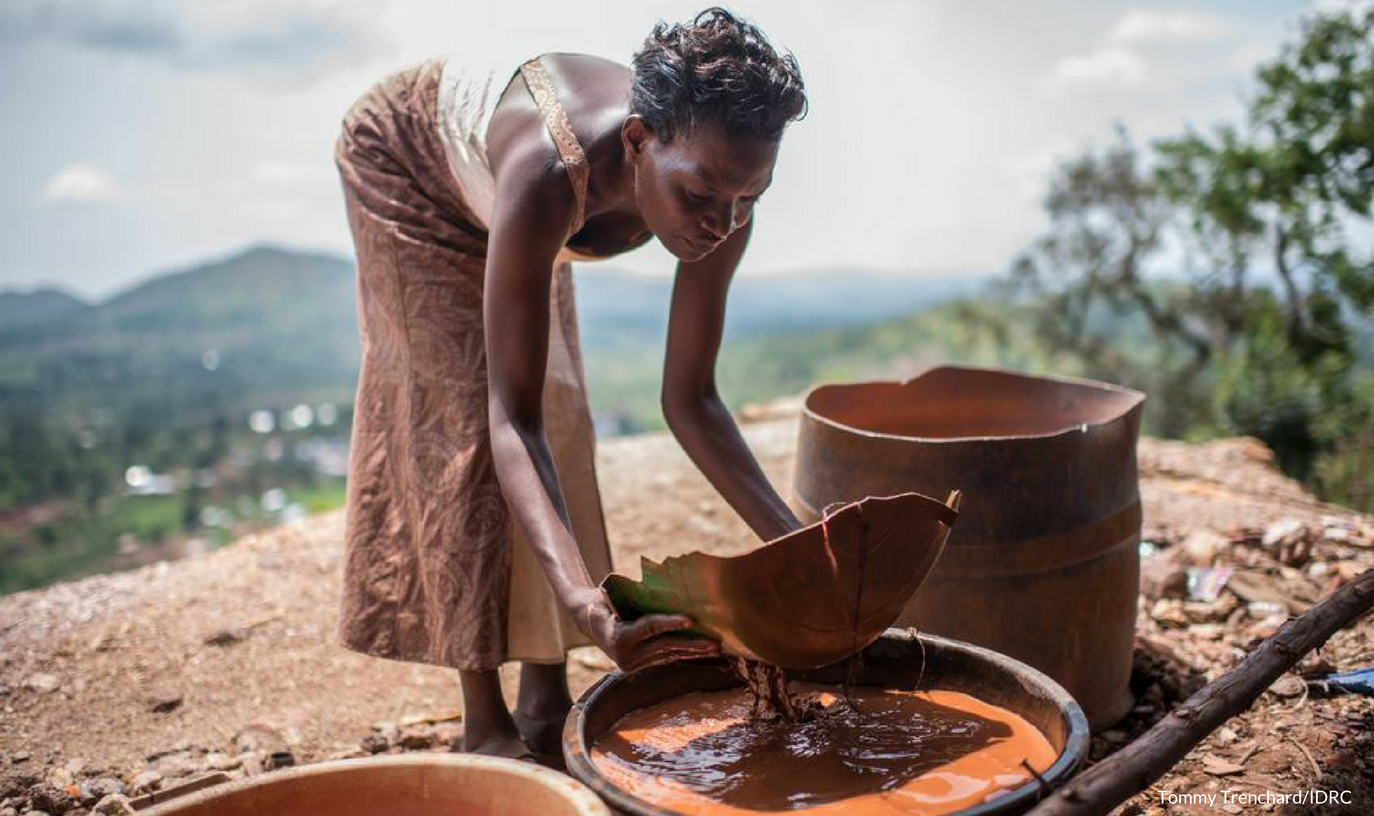Policymakers from the Ministry of Mines, private sector, and civil society are meeting to address challenges and opportunities for women in the country’s artisanal mining sector
Kampala, Uganda / November 22, 2017
Researchers are kicking off a workshop today to present their research findings on the challenges women face in the artisanal mining sector and opportunities for their empowerment.
The three-year research project led by the Development Research and Social Policy Analysis Centre (DRASPAC), IMPACT (formerly Partnership Africa Canada), and Canada’s Carleton University has explored women’s livelihoods in the artisanal mining of 3Ts (tin, tantalum, tungsten) and gold within Uganda, Rwanda, and Democratic Republic of Congo.
Through surveys, focus groups, life histories, and interviews, the project studied dynamics at two mines in Uganda—a gold mine in Central Region and a tin mine in Western Region.
“After three-years of research—getting to understand the lives of women and men at the two mine sites—we have found that the role of women in the artisanal mining sector cannot be ignored. They have an important contribution to the sector but the challenges they face must be addressed,” said Abby Sebina-Zziwa, the lead researcher for DRASPAC.
Policymakers from the Ministry of Mines, Ministry of Women, women miners, private sector, and civil society attending the workshop will be presented with how gender inequality limits women’s contributions in the artisanal mining sector and their potential as economic and social actors.
Researchers found that women have a major role to play in artisanal mining and the income they earn from the sector is lucrative. While women earned only half of what men earned at both sites surveyed, this income women were earning from mining was three times more than any income they were earning from other activities.
Women also told researchers about the importance the sector—and the income they earn—has on their families. 65% of women surveyed in the gold site and 44% at the tin site reported being major contributors to their household income.
“Now that we have a deeper understanding of the role women play in the sector, we can support the necessary reforms to promote women’s empowerment in artisanal mining,” said Gisèle Eva Côté, the lead researcher for IMPACT.
Participants in the workshop will be putting the research recommendations into action—with working sessions to ensure gender and human rights are integrated into Uganda’s mineral laws that are up for reform.
IMPACT has developed the Gender Assessment for Minerals Policy, Law, and Governance that enables governments to integrate gender equality at every stage of their policies and laws. This tool is being piloted during the workshop.
This project is part of the Growth and Economic Opportunities for Women (GrOW) program, jointly funded by the UK’s Department for International Development (DfID), the William and Flora Hewlett Foundation, and Canada’s International Development Research Centre (IDRC). Funding for the Gender Assessment tool is provided by Global Affairs Canada.
Read the full findings and recommendations here.
– 30 –
IMPACT—formerly Partnership Africa Canada—transforms how natural resources are managed in areas where security and human rights are at risk. We investigate and develop approaches for natural resources to improve security, development, and equality. We are an independent non-profit, collaborating with local partners for lasting change.
Photo copyright Tommy Trenchard/IDRC. A woman miner at gold mine site in Uganda tests a small sample of sand to find out if there is gold. She is one of the handful of women at the artisanal mine site who own a stake in a mine shaft.

